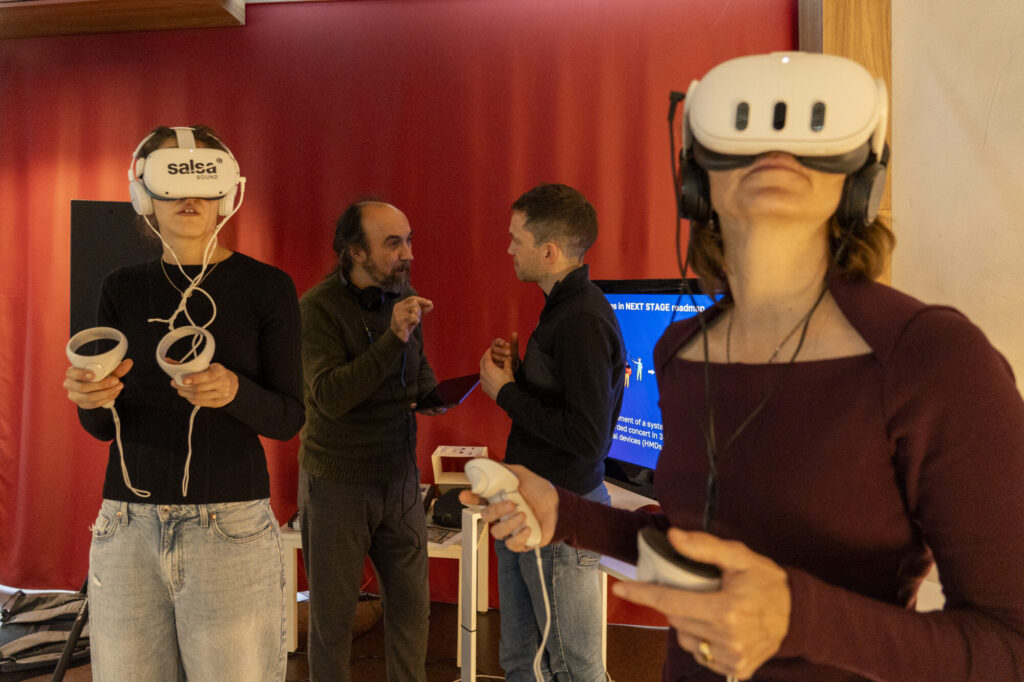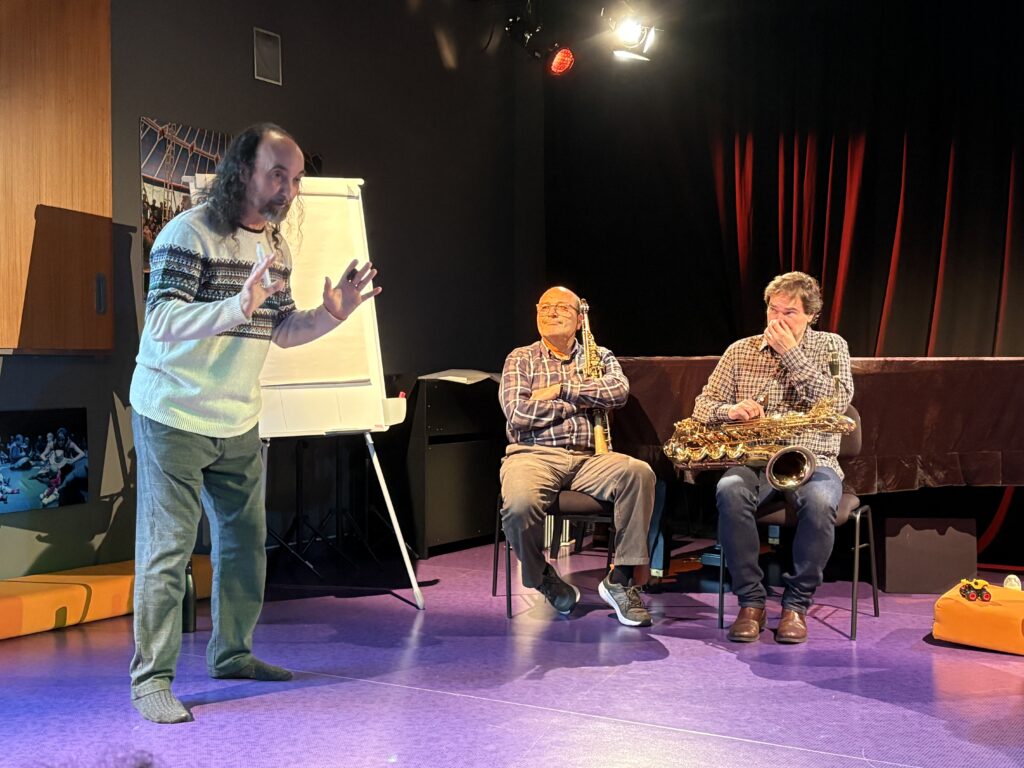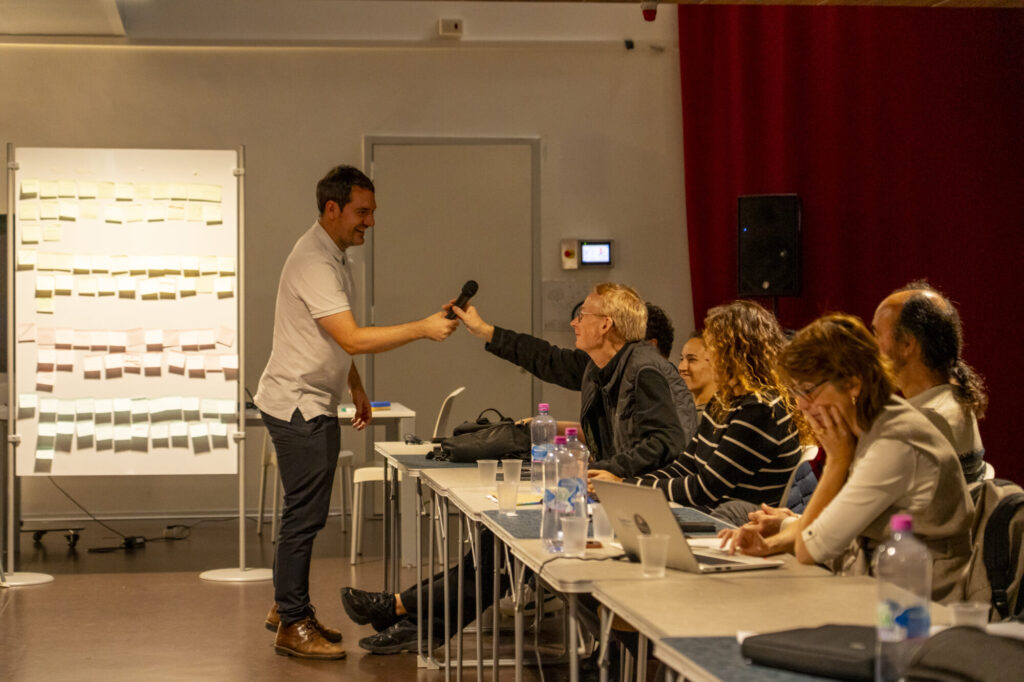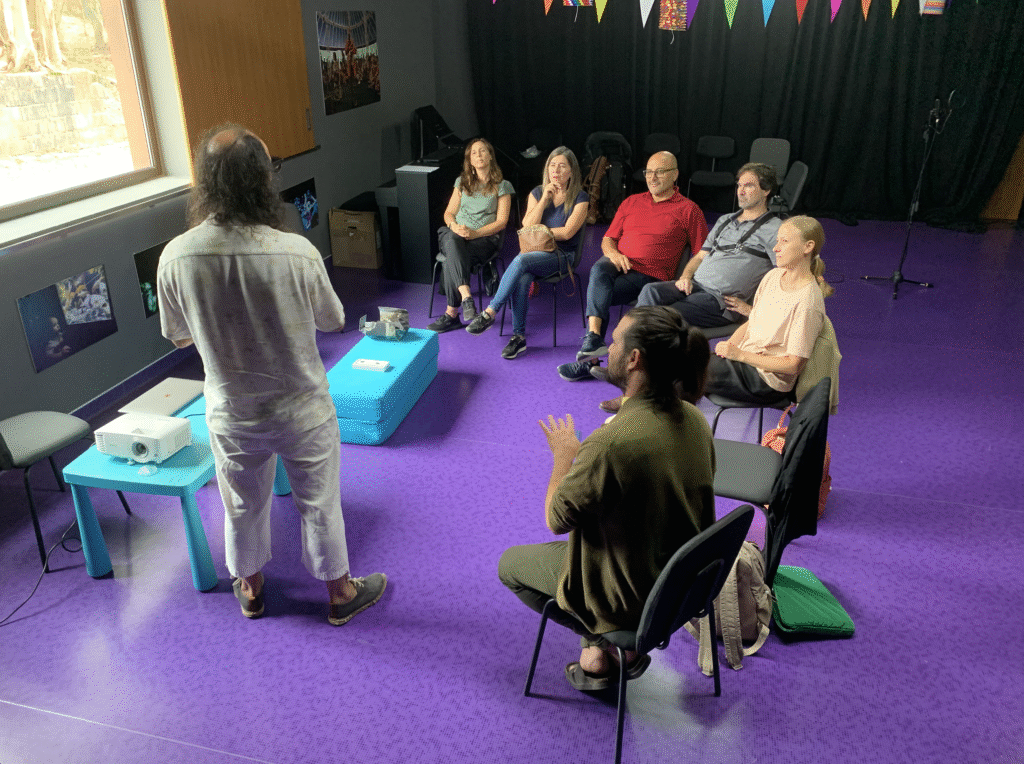Can an Opera House Truly Belong to the People? How LICEU and AMPLIFY Are Reinventing Opera
Interview with Irene Calvis Grand Teatre Del Liceu – Pilot Relealing Opera
23 April 2025
What is LICEU’s role in the AMPLIFY Project?
The Gran Teatre del Liceu is one of the four artistic partners of the European consortium AMPLIFY. The Liceu Opera House is a cultural facility founded in 1847 at La Rambla in Barcelona, is an opera house that over the years has maintained its status as a cultural and artistic center. It is one of the symbols of the city. It is currently a publicly owned theater managed by the Gran Teatre del Liceu Foundation, which incorporates, in addition to the public administrations, the Patronage Council and the Society of the Gran Teatre del Liceu.
Through the program OPERA PRIMA, the Liceu’s community-driven artistic creation program, the theatre will produce a new opera in collaboration with Barcelona’s Sant Andreu district. This is the second production of the project, following the premiere of La gata perduda in the 2022/23 season—an opera co-created with the Raval neighborhood of Barcelona. The Liceu will premiere the co-created opera with the Sant Andreu district in the 2026/27 season. This second operatic production involves the active participation of neighbors and organizations, with the support and collaboration of Barcelona City Hall.
Home to more than 150,000 people, the Sant Andreu district represents 9% of Barcelona’s population and boasts a strong tradition of civic engagement, culture, and music—elements that will be reflected in the creative process.
How will AMPLIFY IMMERSIVE support the storytelling and creative process of this community opera?
The technology should connect communities through music, transcending geographical boundaries and fostering collaboration in creative spaces. Technology should always serve the needs of the Sant Andreu district community and do so in an engaging and moving way. It should be at the service of sharing and preserving memories and highlighting the importance of reclaiming historical memory.
Technology would be very useful to make visible, through immersive technology, creative processes, so important in the Liceu pilot. Making visible the fact that the process can be as important or more important than the final result. And it could allow us to connect two different scenarios, creating a link between the Liceu and the community related to the community opera project.

Why is it important to involve local communities directly in the creation of an opera?
Liceu aims to produce a new opera every three years through community- driven processes, fostering collective participation to bring the genre closer to all audiences. Part of the LiceuApropa social program, it was created with the firm belief that art is a powerful tool for social transformation and personal growth, promoting inclusion and strengthening community bonds through culture.
Community creation ensures that the district is fully engaged throughout the artistic process—from dramaturgy, musical and choral performance, and technical production to communication—through an ongoing dialogue with professionals from various disciplines. The goal of this project is to bring together the professional opera world and the local community to create a new opera. It is important to directly involve local communities in the creation of an opera if we want to make the community feel that the artistic project belongs to them. It is the way to make each artistic project unique and extraordinary. The idiosyncrasy of each project is strongly linked to the community that represents it.
How could this project reshape the way opera is created and shared with new audiences?
The Gran Teatre del Liceu is an institution with more than 175 years of history. If there is one thing we have learned, it is to make opera, connecting ourselves in the international circuit, with professionalized and highly specialized collaborations that involve operatic co-productions with other opera houses in the world.
Now, for the second time, we want to demonstrate that another way of making opera is possible. One that opens up new forms of collaboration, participation and co-creation, involving non-professional agents or those far from the lyrical sector. Liceu pilot project goes beyond the creation of an opera with the district’s residents. It also represents a process of community mediation over three years, establishing collaborations around artistic creation and culture with organizations, facilities, and local residents. In this way, it aims to create spaces of interaction between the territory and the Liceu, allowing people to get to know the theatre up close and immerse themselves in operatic creation through attendance as an audience, activities, visits, and the LiceuApropa and LiceuAprèn programs (social and educative programs).
What kind of impact do you hope this will have on both participants and the wider community?
The community production initiative with the aim of contributing to the development of citizens’ cultural rights —equality, diversity, territorial rebalancing, and cultural democracy— as well as promoting equity in the participation and enjoyment of opera. Each process lasts three years, from its conception to its performance in the Grand Hall of the Gran Teatre del Liceu, becoming a significant challenge for the city and a step forward toward an institution sensitive to the realities of the 21st century.
This project seeks to generate a transversal transformation both inside and outside the Liceu, promoting processes of active participation and community synergies. One of its main pillars is the social cohesion of the territory through artistic creation, alongside the approach of opera to a diverse population and community involvement.
At the same time, it offers Liceu professionals an enriching and unique experience that strengthens the bond between art and society. With a strong commitment to community creation, the project gives a voice to the citizens of the area, highlighting their memory, multiculturalism, language, and sounds.
Active participation extends to all areas of creation: from musical and dramaturgical writing to choral, musical, and theatrical performance, as well as technical and scenic construction. This involvement makes the community the protagonist of an opera that reflects their identities and sociocultural contexts.

What are the biggest challenges in using immersive tech in this context, and how do you plan to overcome them?
The biggest challenges are how could digital technology offer the public rewarding live concert experiences without the physical presence of the artists?
How might digital technology help involve a community during an opera co-creation process?
How could technology democratize the premiere of La rosa dels set petals (The Rose with Seven Petals)?
How could technology help in collecting and validating the intangible heritage – especially the living memory and oral history – of key sites in Sant Andreu, such as Trinitat Vella Women’s Prison, the former Fabra i Coats factory and the Bon Pastor social housing?
How might digital technology help present this experience and material heritage to the people of Sant Andreu and the city as a whole, ensuring that they become a meaningful resource for Barcelona?
How can the technology and the projects it supports strengthen connections between the Sant Andreu district and the Liceu opera house?
How can the La rosa dels set petals opera use digital technology to make the tangible and intangible heritage of Sant Andreu visible to the city as a whole?
How can the digital resources of Amplify help reach new audiences for community opera?




